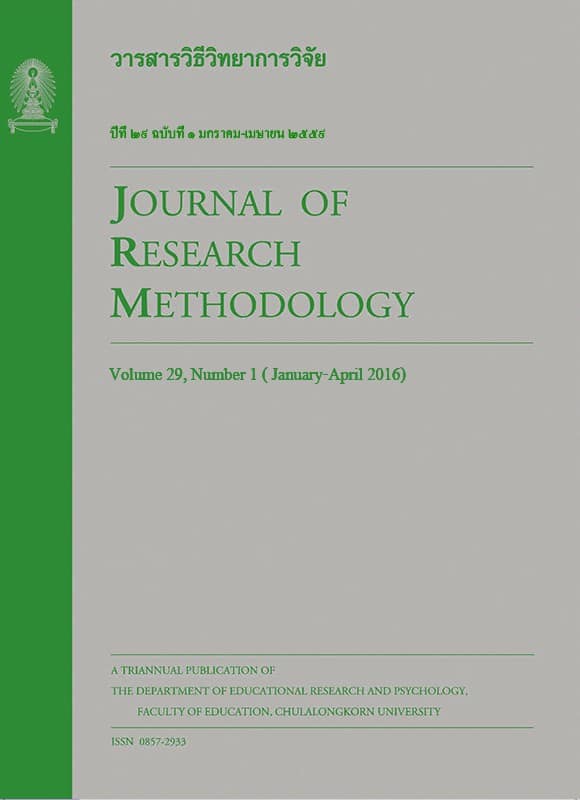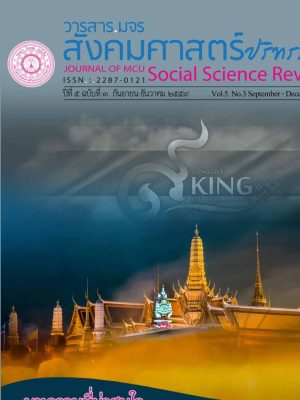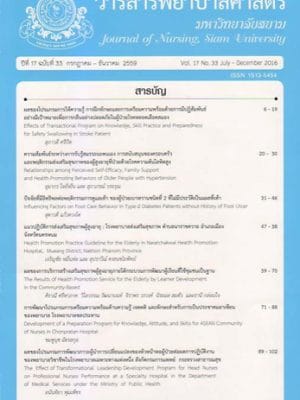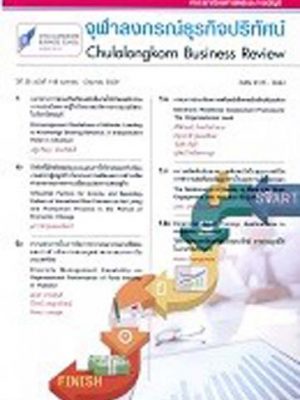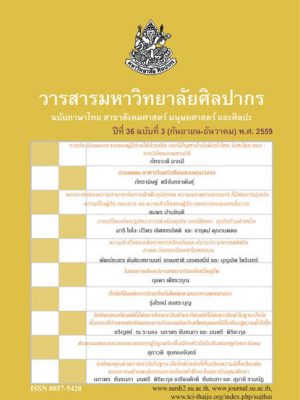การพัฒนาองค์ความรู้และพัฒนาเครื่องมือวัดและประเมินมาตรฐานผู้เรียนอย่างรอบด้านในระดับการศึกษาขั้นพื้นฐาน
Abstract
การวิจัยครั้งนี้มีวัตถุประสงค์เพื่อ (1) สร้างมาตรฐานการศึกษาขั้นพื้นฐานที่เหมาะสมทันสมัย และตอบสนองต่อทักษะการเรียนรู้สำหรับศตวรรษที่ 21 และ (2) เพื่อนำเสนอวิธีการและตัวอย่างเครื่องมือวัดและประเมินมาตรฐานผู้เรียนรอบ ด้าน วิธีการวิจัยเป็นการศึกษาเอกสาร เน้นการวิเคราะห์และสังเคราะห์องค์ความรู้เกี่ยวกับทักษะการเรียนรู้สำหรับ ศตวรรษที่ 21 เพื่อนำไปสู่การปรับปรุงมาตรฐานการศึกษาขั้นพื้นฐานด้านผู้เรียนให้เหมาะสม ทันสมัย และตอบสนองต่อทักษะการเรียนรู้สำหรับศตวรรษที่ 21 ทบทวน วิเคราะห์ และสังเคราะห์องค์ความรู้ด้านเครื่องมือวัดและประเมินมาตรฐานการศึกษาขั้น พื้นฐานด้านผู้เรียนอย่างรอบด้านที่สะท้อนถึงการวัดทักษะการเรียนรู้สำหรับ ศตวรรษที่ 21 และการใช้เครื่องมือดังกล่าวต่อการพัฒนาคุณภาพและมาตรฐานเพื่อพัฒนาสร้าง สรรค์กำหนดวิธีการและพัฒนาเครื่องมือวัดและประเมินมาตรฐานผู้เรียนรอบด้านใน ระดับการศึกษาขั้นพื้นฐาน พร้อมนำเสนอวิธีการและตัวอย่างเครื่องมือวัดและประเมินมาตรฐานผู้เรียนอย่าง รอบด้าน ทั้งนี้เพื่อใช้การวิจัยเป็นกรณีศึกษาสำหรับประเทศไทยที่มีการริเริ่มนวัต กรรมด้านการวัดและประเมินมาตรฐานผู้เรียนอย่างรอบด้านที่สะท้อนถึงทักษะการ เรียนรู้ที่สำคัญในศตวรรษที่ 21 และยังเป็นการพัฒนาข้อเสนอเพื่อดำเนินยุทธศาสตร์การปฏิรูประบบและเครื่องมือ วัด และประเมินมาตรฐานผู้เรียนอย่างรอบด้านในระดับการศึกษาขั้นพื้นฐานสำหรับ ประเทศไทย
ผลการวิจัยเบื้องต้น พบว่า
(1) มาตรฐานการศึกษาขั้นพื้นฐานด้านผู้เรียนในศตวรรษที่ 21 ประกอบด้วย 7 มาตรฐาน ดังนี้ มาตรฐานที่ 1 ผู้เรียนมีสุขภาวะที่ดีและสุนทรียภาพ ลักษณะหลักคือ มีความฉลาดทางสุขภาวะและสุนทรียภาพ มาตรฐานที่ 2 ผู้เรียนมีคุณธรรม จริยธรรม และค่านิยมที่พึงประสงค์ ลักษณะหลักคือ มีเหตุผลเชิงจริยธรรมและความยุติธรรม มาตรฐานที่ 3 ผู้เรียนมีความรู้ที่จำเป็นในการดำรงชีวิตและการศึกษาต่อในระดับที่สูงขึ้น ลักษณะสำคัญ ได้แก่ ผลสัมฤทธิ์และการรู้เรื่องคณิตศาสตร์ ผลสัมฤทธิ์และการรู้เรื่องวิทยาศาสตร์ ผลสัมฤทธิ์และการรู้เรื่องสังคมศึกษา การรู้เท่าทันทางการเมือง มีจิตสำนึกความเป็นพลเมือง/ความตระหนักทางวัฒนธรรมและสังคม ผลสัมฤทธิ์และการรู้เรื่องภาษาไทย และผลสัมฤทธิ์และการรู้เรื่องภาษาอังกฤษ มาตรฐานที่ 4 ผู้เรียนมีความคิดอย่างเป็นระบบ คิดอย่างมีวิจารณญาณ คิดสร้างสรรค์ คิดตัดสินใจแก้ปัญหา เผชิญปัญหา และแก้ปัญหาอย่างมีสติสมเหตุผล ลักษณะหลักคือ ผู้เรียนสามารถคิดอย่างมีวิจารณญาณ และมีความฉลาดเผชิญปัญหาฝ่าวิกฤติ มาตรฐานที่ 5 ผู้เรียนมีทักษะในการเรียนรู้และแสวงหาความรู้ด้วยตนเอง การรู้และรักการอ่าน รักการเรียนรู้และพัฒนาตนเองอย่างต่อเนื่อง ลักษณะหลักคือ การรู้เรื่องการอ่าน มาตรฐานที่ 6 ผู้เรียนมีความสามารถในการใช้เทคโนโลยีสารสนเทศ สื่อ และเทคโนโลยีสารสนเทศ และการสื่อสารเพื่อการเรียนรู้และการดำเนินชีวิต คือ การรู้เท่าทันสารสนเทศสื่อและเทคโนโลยี และมาตรฐานที่ 7 ผู้เรียนมีทักษะชีวิตและการทำงาน มีความฉลาดทางอารมณ์ มีทักษะการให้ความร่วมมือ สามารถทำงานร่วมกับผู้อื่นได้ มีเจตคติที่ดีต่ออาชีพสุจริตและภาวะผู้นำ ลักษณะหลักคือ ความฉลาดทางอารมณ์ ทักษะการแก้ปัญหาแบบร่วมมือ
(2) ผลการศึกษาลักษณะที่มุ่งทดสอบและนำเสนอวิธีการ พร้อมตัวอย่างเครื่องมือวัดและประเมิน ประกอบด้วย การคิดอย่างมีวิจารณญาณ เหตุผลทางจริยธรรม ความยุติธรรมและความเป็นธรรม การรู้เท่าทันสารสนเทศ สื่อ และเทคโนโลยี ความฉลาดทางสุขภาวะและสุนทรียภาพ ความฉลาดทางอารมณ์ ความฉลาดเผชิญปัญหาฝ่าวิกฤต การรู้เรื่องการอ่าน ผลสัมฤทธิ์และการรู้เรื่องสาระต่างๆ และทักษะการแก้ปัญหาแบบร่วมมือ
The objectives of this study are (1) to develop basic education levels standards which are responsive to the 21st Century learning skills; (2) to propose methods and examples in using the holistic standards-based evaluation and measurement tools. This documentary research emphasizes the analysis and synthesis of body of knowledge concerning the 21st Century learning skills to be utilized for the revision of the students standards in basic education level. It alsoreviews, analyzes, and synthesizes body of knowledge related to the holistic standards-based evaluation and measurement tools which reflect a measurement of the 21st Century learning skills and the use of such tools for the development of educational quality and standards. Moreover, methods and examples in using the holistic standards-based evaluation and measurement toolsare presented. With the hope that findings of this research which uses Thailand as a case study will lead to the innovation in holistic testing and measuring learning skills in the 21st Century as well as will facilitate strategic reform planning for the system and development of the holistic standards-based evaluation and measurement tools for the basic education students in Thailand.
Initial findings show that
(1) Standards for the 21st Century consist of Standard 1 students are healthy and happy of which the main characteristics are health and aesthetic literacy; Standard 2 students have moral, ethics, and are engaged in desirable social values of which the main characteristics include ethical reasoning, justice, civic responsibility, cultural and social awareness; Standard 3 students obtain knowledge necessitate for living and furthering their studies of which the main characteristics comprise of achievement and knowledge in arithmetic, science, social sciences, Thai, and English, as well as acquiring political literacy; Standard 4 students have systematic and critical thinking, show ability in reasoning and problem-solving skills when facing crisis. Standard 5 students obtain learning skills, are able to perform self-directed learning, love of reading, knowing, and continuous self-development. The main characteristics of this standard include reading literacy and learning styles. Standard 6 students are competent in using media and information technology for their learning and living of which the main characteristics are information and communications technology (ICT) literacy, as well as media literacy. Standard 7 students are proficient in life and work skills. They have emotional intelligence, cooperative skills necessary to work with others, positive attitudes towards legal vocations. Moreover, they possess leadership qualities which include emotional intelligence as well as life and work skills.
(2) Characteristics, their measurement, and examples of testing and measuring for the proposed standards consist of critical thinking, ethical reasoning justice and fairness, media literacy, health and aesthetic literacy, emotional quotients, adversity quotients reading literacy, achievement and literacy in core subjects and collaborative problem solving.
Keywords: Holistic Standards-Based Evaluation and Measurement Tools, Basic Education
